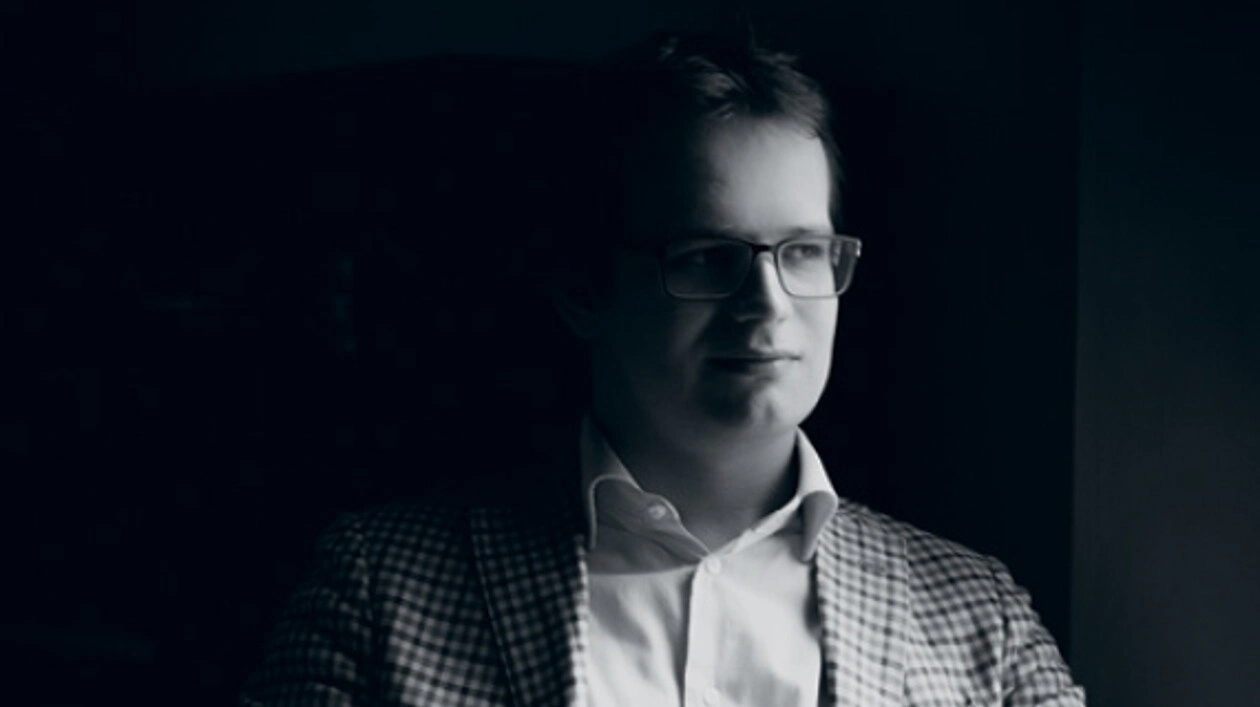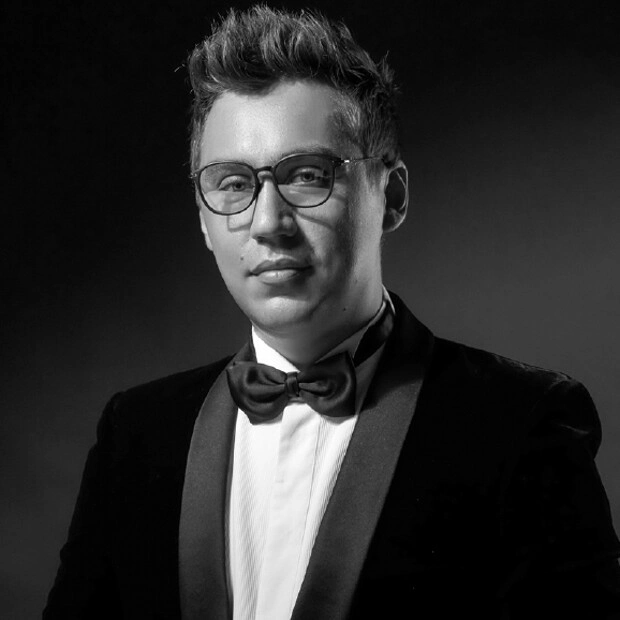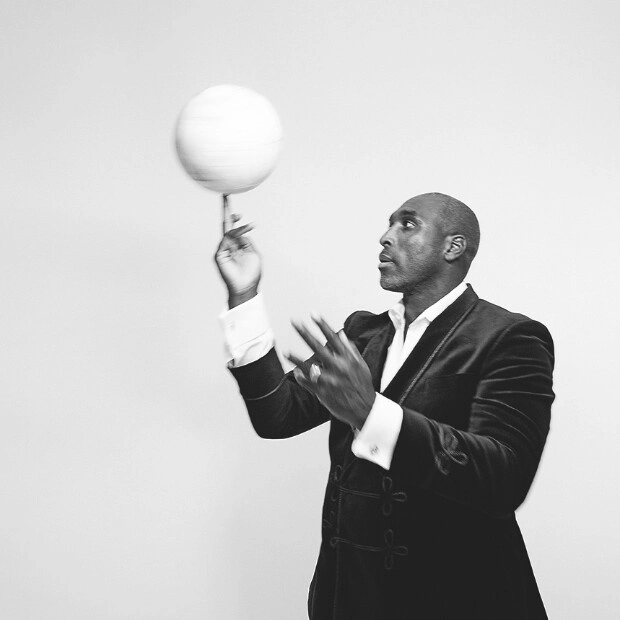‘Never before has the issue of the generation gap and the succession of generations been so topical as nowadays.… It’s the most fashionable one not only in Russian society but everywhere in the West, too’. N.A. Berdyaev said these words about a century ago. Every new generation changes reality according to its lofty thoughts and dreams. Happy is he who understands how absorbingly exciting they are. Vadim Veterkov, a contemporary publicist and literary critic, has more to say on the subject.
Every feast in a Russian family circle, meeting seldom enough for its members’ conversation to be lively and often enough to have not too diverse a scope of topics for discussion, at least a few times, does touch upon the Russian language’s majesty and the shiftlessness of the growing generation.
The two topics, their tandem inseparable, are supposed to divide the feast members into those agreeing with the idea of Russian being the greatest of all languages and believing in a total lack of initiative & goals in the young generation’s lives and those disagreeing with all that. As a rule, the former form the overwhelming majority, with the latter left in the pitiable minority. Most likely, it will be only one individual. At our family gatherings, this role is usually mine.
At this point, fearing Professor Guseynov’s ill fate, I must enter a reservation that Russian is a great, complicated, and not at all cloacal language. Still, it’s not best-suited for talking about vague and half-tone things hidden under a shroud of hints existing in between vigilance and dreaminess, such as dreams, the unconscious, or corruption. Somehow or other, we still cannot properly describe these elusive phantoms in words. No, the Russian language is not for those asleep. It’s for those living in hostile environments – the survivors of Moscow March ’21 need no explanation while others would not get the point anyway – in which any information must be transmitted quickly, clearly, and without unnecessary loss of calories. That must be the secret of the Russian command-obscene language so much admired by the Pentagon.
On the other hand, the English language, according to Jerome K. Jerome, simply having no grammar, is much more appropriate for discussions of things non-existent and immaterial. One day, while reading - on a young relative’s advice - a Marvel comic book, I came across the marvelous word ‘daydream’ meaning both a dream and a lofty thought. This solar word has its night double: the phrase ‘to dream at night’ meaning ‘to see dreams’. Both follow the sun and the moon, respectively, and like both celestial bodies, they, too, have something in common, namely, the seed of lofty thinking.
That means one can enjoy lofty thoughts both by day and by night. The main thing is to have something to sky-hoot about. After all, taking Oscar Wilde’s advice, we must ask people not about what they do but what they think about. It is thoughts rather than actions following them that allow us to form an opinion on who we’re dealing with. And what thoughts could be more significant than dreams? For it is a lofty thought, a dream, and suchlike seven cups that precede every action. The dream sets the goal while the goal determines the action.
Perhaps, I enjoy working with people ten or fifteen years younger than me. The good news for my amour proper is that fifteen years is the maximum distance backwards in time from me to the career-starting age spurred by society. The main reason for this affection of mine is their value orientation having nothing to do with the previous generation’s values.
History is a merciless, yet half-and-half judge never really settling any disputes and often leaving a lot to revisionism, rolling back to fundamentalism, mad Modernists — the Stalinists, the Nazis, and the like — or equally crazy Post-Modernists. Those sure of time never reversing its course should take a look at the snapshots of Teheran taken in the 1970s and compare them with the ones made there today.
Nevertheless, it should not go unspoken that for Russia, the last 20 years have been pretty much a period of unprecedented quiet, letting many catch their breath. This time is in no hurry to be over yet, despite some quite obvious hints, so the bar of history will have a chance to criticise it, but some results can be summed up already now. Perhaps, the main one is the generation value system shift.
Social lifts, ambitions, and hierarchies are the terms and attributes of the past. A manufacturer I am acquainted with says, ‘What kind of business ambitions could we talk about when a beginning entrepreneur understands he will never be able to earn a billion on his own?’ The social building with non-working lifts is, among other things, quiet too. Ambitions and battles are foreign to it. Does it mean those younger of age are helpless? Evidently, not. If society is aware that climbing up the social ladder by oneself is impossible, those supposed to do the climbing do not give a damn about social hierarchies. It’s upsetting only for those already somewhere up that ladder. Many of them get nervous and start issuing manifestos, like that by Konstantin Bogomolov, or trying to use the earlier-earned standing and statuses as bargaining tools. On their side is the burning desire to rule and be accepted as rulers, while on everybody else’s side are cancel culture and the gift of ignoring.
Cancel culture is not only about cancelling one’s authority for an offence committed years ago, say, a rape or an intolerant statement, i.e., whatever used to be OK but is no more. It’s all about cancelling one as a thought leader. Where social hierarchies are done away with, whole institutions’ ones follow suit. Why should glamour culture stand above the street one? In a world where a computer game producer’s capitalisation is higher than that of a deluxe goods producers’ conglomerate, the gamers’ community will be as weighty as that partying at venues with Kremlin or Riviera views. And people gathered in a half-ruined factory space to listen to music will turn out more substantive than those at a posh Patriarshiye Ponds’ bar. This example list is endless.
The absolute starts seeming shaky and unreliable: violence — the most vivid product of power - health, wealth, death. Once a clear world that could have been described in clear Russian, all of a sudden, becomes as obscure as a daydream, like that of the generation watched closely by all, from marketing experts to Federal Security Service officers. It is debatable how kind or wicked this lofty thought is. Nonetheless, it is, for sure, absorbingly exciting.






